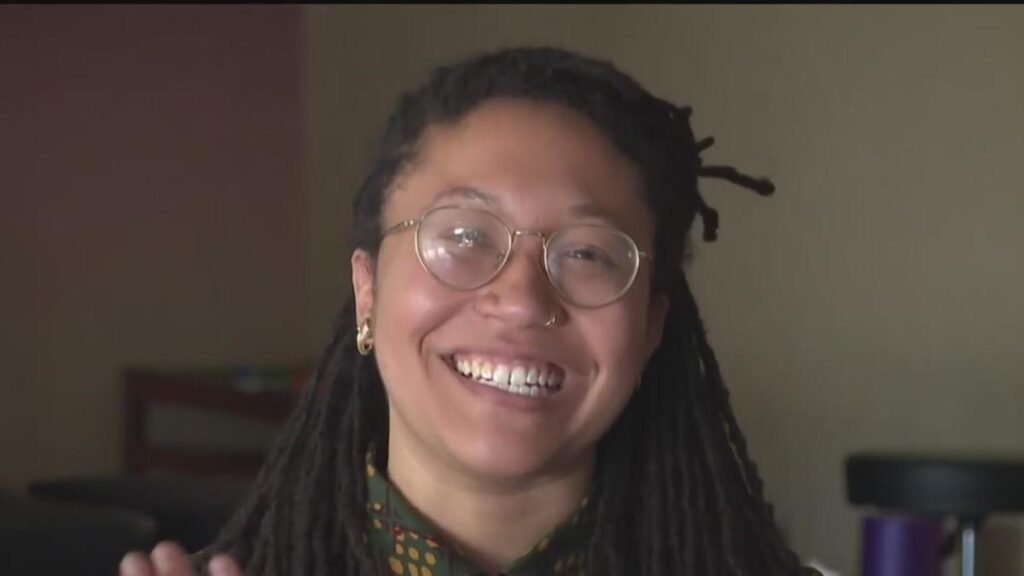Being an entrepreneur is not easy, and when you add being transgender or gender non-conforming to the mix, it becomes even more difficult.
But there are groups in the San Francisco Bay Area trying to change that while building a stronger sense of community, including Devon Barton.
Burton is a healer who currently runs an acupuncture clinic in Oakland’s Diamond District, but if all goes according to plan, he will see patients at clinics in Oakland and San Francisco, offering a safer, more comfortable space for holistic treatment, particularly for transgender and gender non-conforming people.
“I’m transgender and I’m Black and there are a lot of people in my community who have special needs,” Burton said.
Burton hopes to expand, and is working to make that happen: They’re part of a select group of up-and-coming trans and queer entrepreneurs who will receive four months of business coaching, mentorship, and ultimately a $10,000 grant.
It’s called the Entrepreneur Accelerator Program (EAP) and is run by the San Francisco Transgender District and funded by the San Francisco Office of Economic and Workforce Development (OEWD).
“I applied to the program many times before I started my business but I wasn’t accepted. I just wanted to be a part of this community,” Burton said.
It’s a community where you can hone your business acumen, learn from your peers, and figure out how to best navigate the obstacles that transgender entrepreneurs often face.
“We don’t always get grants. We can’t go to every place because not every place is safe for us. Not only do I have financial support. Not only do I have classes to help me build my business and know how to do things. I also get a literal community. One of the benefits I get is an overwhelming feeling that I’m not alone,” Burton said.
Program director Sam Favela said EAP was created out of necessity almost four years ago.
“Being an entrepreneur is hard, even if you’re a transgender person or a person of color,” Favela said.
“There are so many barriers they have to overcome and things they don’t have access to, and this program here really gets past all of that and gives them the choice to live happily on their own terms, just like they would want other people to do the same,” Favela said.
Favela says the program has proven successful, with many people opening stores or expanding their businesses.
“Through this program, they slowly gain confidence. Instead of just thinking, ‘I want to do this,’ they start thinking, ‘No, I’m doing this,'” Favela said. “This program is an opportunity for people to show themselves that they can do more than they think they can.”
But what’s truly special, Favela says, is what can’t be quantified.
“It’s impossible to quantify how much these people’s lives are changing and how much it’s impacting other people’s lives and the community that’s being built. People are constantly asking when the next group is and how they can get involved. They’re hearing and seeing the changes,” Favela said. “I know we’re doing something right because they’re coming back. They feel safe here. I want to come back and do more.”
Zeus Hines is a graduate of a previous cohort and is thankful that the program exists and continues to exist.
“It’s really nice to know that there are others like me who have the opportunity to expand their business. It’s hard for us to get these opportunities, so it’s great that the transgender district is available for us,” Hines said.
We are currently expanding our business, called Concept Kitchen.
“We’re looking at different locations around San Francisco and hopefully we’ll have a location soon, probably this year or early next year, where we’re looking for a brick-and-mortar location to sell food,” Hines said.
Each entrepreneur who joins our program has a different plan, mission, and dream. But while the details may differ, the heart is the same: Like everyone else, they want to be successful. And support is key to finding that success.
That’s why the program’s implicit benefits, the community aspect and collective power, are so important to Barton.
“I think for a lot of black trans people, the idea that you’re normal and beautiful and loved can be really hard unless someone is whispering to you every day that you’re worthy of living,” Burton said.
Every day, Burton sees and appreciates people for who they are, and he hopes to see more of that in his community.
“I’m always grateful for the work that people are doing to make spaces more accessible and safe. I want to see that effort. I want to see people asking questions. And at the same time, I think more needs to be done,” Burton said.
That’s one of the many reasons they feel compelled to expand: to further strengthen the power of the collective, to provide a space where people feel safe and accepted, and to offer peaceful moments where they can be their 100% selves.
Pamela Smart pleads guilty to murder more than 30 years after husband murder
Analyzing the Supreme Court’s Mifepristone Abortion Pill Ruling
Wisconsin school farm aims to alleviate food insecurity

